-
Product Name
Anti-SHP2 (6G2) Mouse antibody
- Documents
-
Description
SHP2 (6G2) Mouse monoclonal antibody
-
Tested applications
WB, IHC-P, ICC/IF, FC, IP
-
Species reactivity
Human
-
Isotype
Mouse IgG1
-
Preparation
Antigen: Purified recombinant fragment of human PTPN11 (AA: 263-329) expressed in E. Coli.
-
Clonality
Monoclonal
-
Formulation
Purified antibody in PBS with 0.05% sodium azide
-
Storage instructions
Store at 4°C short term. Store at -20°C long term. Avoid freeze / thaw cycle.
-
Applications
WB: 1/500 - 1/2000
IHC: 1/200 - 1/1000
ICC: 1/200 - 1/1000
FC: 1/200 - 1/400
ELISA: 1/10000
-
Validations
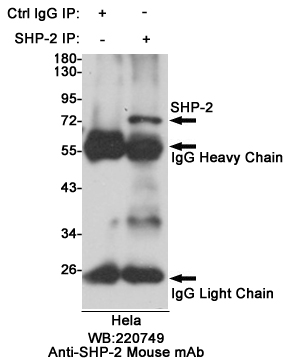
Immunoprecipitation analysis of Hela cell lysates using SHP-2 mouse mAb.
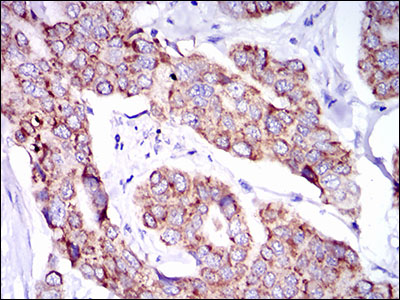
Immunohistochemical analysis of paraffin-embedded breast cancer tissues using SHP-2 mouse mAb with DAB staining.
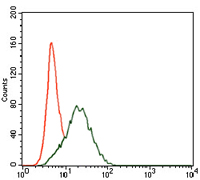
Flow cytometric analysis of HepG2 cells using SHP-2 mouse mAb (green) and negative control (red).
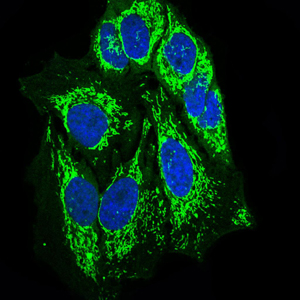
Immunofluorescence analysis of HeLa cells using SHP-2 mouse mAb (green). Blue: DRAQ5 fluorescent DNA dye.
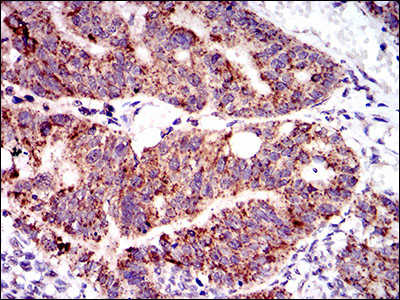
Immunohistochemical analysis of paraffin-embedded rectum cancer tissues using SHP-2 mouse mAb with DAB staining.
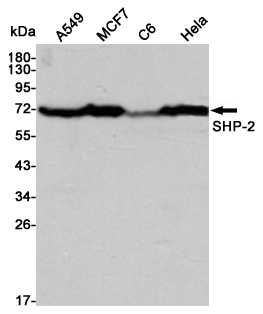
Western blot detection of SHP-2 in A549,MCF7,C6 and Hela cell lysates using SHP-2 mouse mAb (1:3000 diluted).Predicted band size:68KDa.Observed band size:72KDa.
-
Background
Swiss-Prot Acc.Q06124.The protein encoded by this gene is a member of the protein tyrosine phosphatase (PTP) family. PTPs are known to be signaling molecules that regulate a variety of cellular processes including cell growth, differentiation, mitotic cycle, and oncogenic transformation. This PTP contains two tandem Src homology-2 domains, which function as phospho-tyrosine binding domains and mediate the interaction of this PTP with its substrates. This PTP is widely expressed in most tissues and plays a regulatory role in various cell signaling events that are important for a diversity of cell functions, such as mitogenic activation, metabolic control, transcription regulation, and cell migration. Mutations in this gene are a cause of Noonan syndrome as well as acute myeloid leukemia. Two transcript variants encoding different isoforms have been found for this gene.
Related Products / Services
Please note: All products are "FOR RESEARCH USE ONLY AND ARE NOT INTENDED FOR DIAGNOSTIC OR THERAPEUTIC USE"
